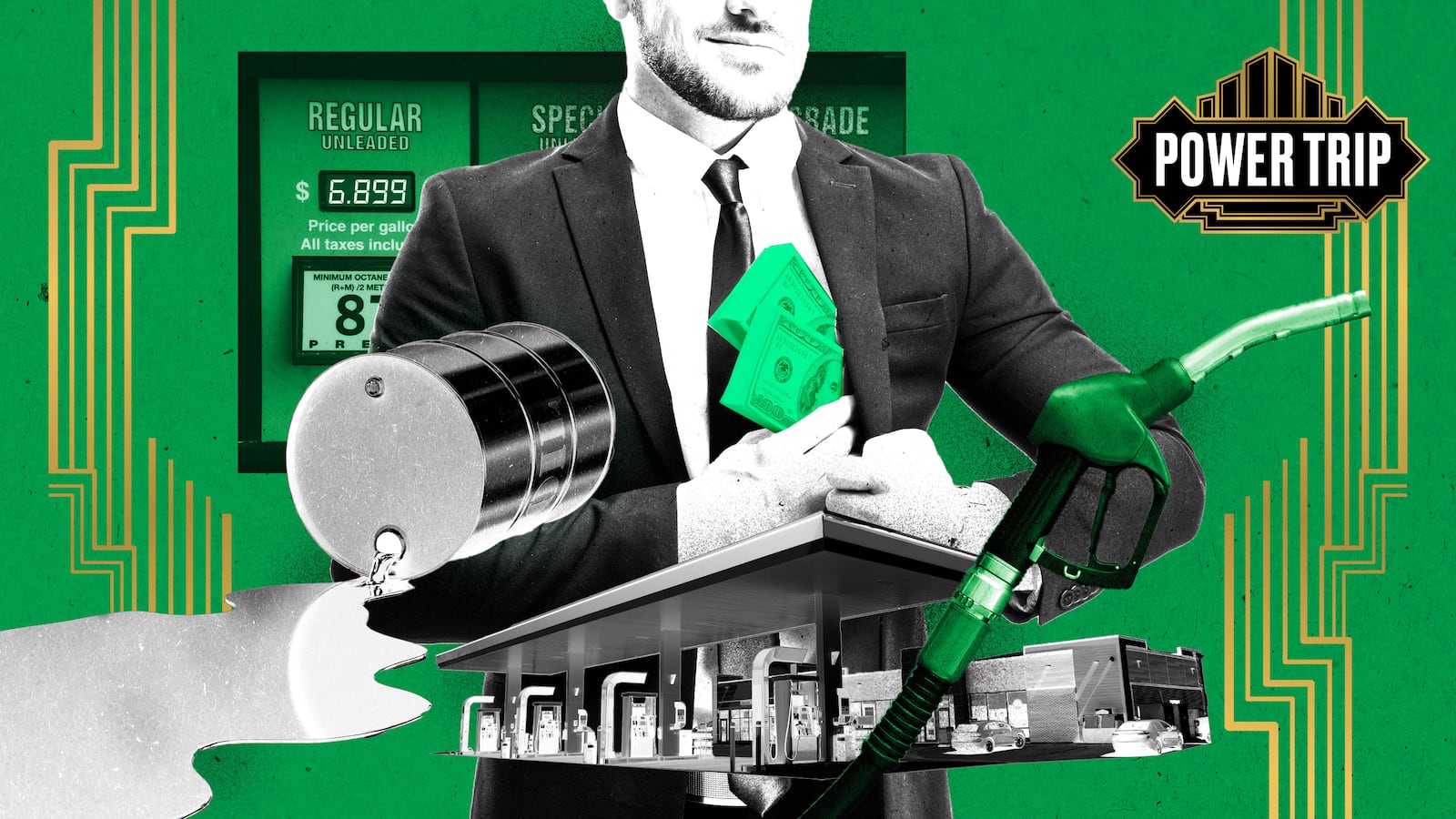Gas prices have skyrocketed to record highs, forcing some families to choose between filling their tank and putting food on the table. But for the oil execs whose stock holdings have soared, these are happy days—and some of them are cashing in their shares at unusually high rates.
Among four senior executives at publicly traded PBF Energy, for instance, including the chief financial officer and general counsel, none had previously sold their portions of the oil company’s shares except to satisfy taxes or the cost of exercising their stock, according to public filings. In the last three months they have collectively dumped more than $9 million of it.
For the execs—Paul Davis, Trecia Canty, Thomas O’Connor, and Erik Young—it’s a lucrative time to offload shares. PBF’s stock has skyrocketed 145 percent so far this year, riding a broader industry uptick fueled in part by surging demand, inflation, and the war in Ukraine.
The optics of the selloff aren’t great, considering that, as one example, the average price per gallon of gas in California is now above $6. Forbes reported on Friday that prices in some markets could hit $8 per gallon.
“This is killing people, because they have to choose between food and gas, and rent and gas, and health care and gas,” said Jamie Court, president of Consumer Watchdog.
Of the executives, he added, “I don’t know that they’re doing anything illegal, but it’s clearly pretty unethical to be making this type of money off people’s pain.”
The leaders at PBF aren’t alone. At Chevron, executive vice president James Johnson has sold more than $56 million in stock so far this year, filings show. That equates to 394,000 shares, more than four times what he sold in all of 2021 after selling none the year before.
In the most recent quarter, Chevron’s net income more than quadrupled compared to the same period the prior year, to a staggering $6.3 billion.
“It’s unsustainable to be making that type of profit… The companies know it and the executives know it, and they’re dumping their stock,” said Court.
The list goes on. Chevron vice president Colin Parfitt has sold $15.7 million in stock in 2022, equivalent to roughly seven times as many shares as last year. And ConocoPhillips CFO William Bullock traded in $7.7 million worth of stock in March, or three times as many shares as he offloaded in each of 2020 and 2021.
According to Bloomberg, in the first quarter, oil industry execs collectively sold over $1 billion worth of stock.
Representatives for PBF did not respond to requests for comment for this story. A spokeswoman for Chevron said that the board compensation committee’s “pay philosophy is aimed at aligning performance with stockholder returns and balancing short-term and long-term decision making.” The committee “believes the ownership levels of Chevron’s named executive officers provide adequate focus on the company’s long-term business model,” she added.
A spokesperson for ConocoPhillips, meanwhile, said that the company does “not comment on the individual investment decisions of our executives and directors.” He emphasized that ConocoPhillips is an “upstream” oil company, meaning that it specializes in energy exploration and production but doesn’t manufacture or set prices for gasoline.
Frank Macchiarola, a senior vice president at the industry trade group the American Petroleum Institute, also made the case that energy companies are doing nothing wrong. “Repeated in-depth investigations by the FTC have shown that changes in gasoline prices are based on market factors and not due to illegal behavior,” he wrote in a statement to The Daily Beast. “The price at the pump that Americans are currently paying is a function of increased demand and lagging supply combined with geopolitical turmoil and policy uncertainty from Washington.”
Facing political backlash, the Biden administration has sought to hold oil firms more directly accountable. “This is not the time to sit on record profits, it’s time to step up for the good of your country,” the president said in March.
Six industry execs testified before a House subcommittee the following month, where some of them rejected allegations of price gouging.
Around the same time, two Democratic Congresspeople sent a letter to major energy companies lambasting tens of billions of dollars in dividends and stock buybacks planned for this year.
“Fossil fuel companies are taking advantage of the crisis [in Ukraine] by raking in record profits and spending billions of dollars to enrich their executives and investors,” they wrote.
The companies have also faced criticism for rebuffing calls to substantially increase production in order to drive down prices, as The New York Times also reported in April. As the outlet noted, energy firms suffered losses earlier in the pandemic and are reluctant to add new risk to their balance sheets.
Seeking to shift some of the blame for stratospheric fuel costs, the Democrat-controlled House recently passed the Consumer Fuel Price Gouging Prevention Act, a measure that would afford the president new powers to cap prices. The bill is unlikely to pass the Senate, and there are mixed opinions about whether it would reduce pain at the pump anyway.
Nonetheless, oil companies are in the familiar position of suffering reputational damage, and the recent stock selloffs by its leaders aren’t helping.
Laurie Wheelock, deputy director of the Public Utility Law Project of New York, said that high fuel prices are directly impacting home energy costs. Hundreds of consumers have reached out to the organization scrambling to manage higher bills, she said. “They contact us in a panic.”
“It’s just outrageous,” echoed Consumer Watchdog’s Court. “It’s profiteering.”





